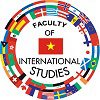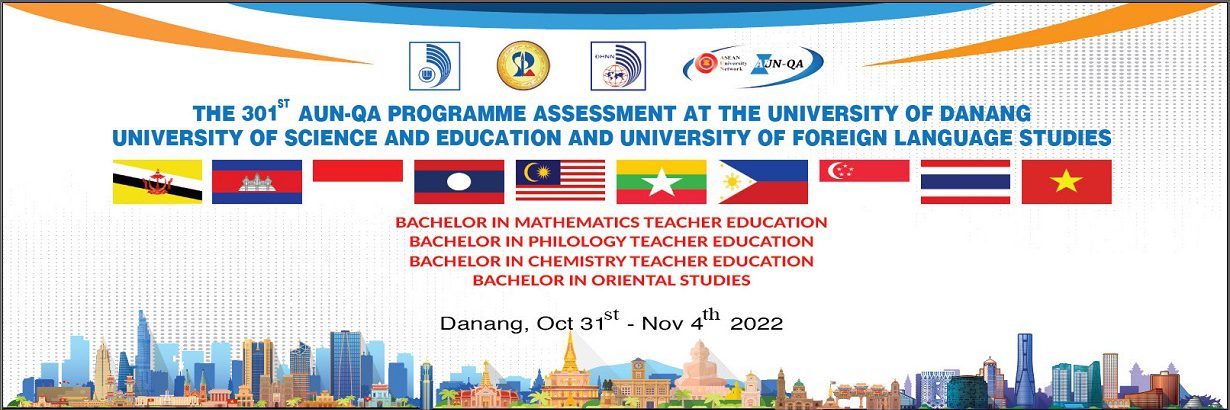BRIEF INFORMATION OF THE UNDERGRADUATE PROGRAM IN INTERNATIONAL STUDIES
- Program objectives
1.1 General objectives
The International Studies undergraduate program equips students with fundamental and in-depth knowledge related to International Studies, with a focus on International Relations and International Development Studies; thus provides students with abilities to do research, teach and work in the foreign affairs and development fields. In addition, students are expected to develop ethical and political commitment, a professional working attitude as well as satisfactory overall health to work efficiently in the fields of International Studies and to meet the professional needs of graduates in the era of economic integration.
1.2 Specific Objectives
- To formulate students’ political and moral consciousness and good sense of serving the people.
- To develop students’ knowledge of social sciences and humanities and International Studies, with a focus on International Relations and International Development Studies to research global issues, area studies and international development.
- To improve students’ English language skills including listening, speaking, reading and writing proficiently as these are keys to conducting academic research and accomplishing their future professional tasks.
- To develop students’ knowledge and skills to research, teach and work in foreign affairs and international development.
- To develop students’ communication skills and information technology skills to prepare them to work in multidisciplinary and culture diversity environment and to promote life-long learning.
- To develop students’ ability to pursue further study at higher levels in domestic and foreign educational institutions.
- Program Expected Learning Outcomes
Graduates of International Studies program are expected to be equipped with good skills, abilities and attitude to:
PLO1: apply knowledge of social sciences and humanities in working.
PLO2: apply knowledge of international laws, economics, international relations, culture, history, area studies, and international development in working.
PLO3: conduct scientific research related to International Studies.
PLO4: evaluate political, economic and social movements and trends in regional and global contexts.
PLO5: organize activities related to foreign affairs and public relations.
PLO6: develop independent thinking, critical thinking and teamwork skills.
PLO7: apply communication skills in Vietnamese and English effectively in professional activities
PLO8: Construct life-long learning as a skill for comprehensively personal development.
PLO9: Apply legal, professional, ethical, civil responsibilities and obligations in real life situations.
- Curriculum Structure
|
|
Knowledge bloc
|
Course name
|
No. of credits
|
|---|---|---|---|
|
3.1
|
General Knowledge
|
|
|
|
3.1.1
|
Marxist and Leninist Theories and Ho Chi Minh’s Thought
|
Basic Principles of Marxism and Leninism
|
3
|
|
Marxist-Leninist political economy
|
2
|
||
|
Revolutionary Paths of the Viet Nam Communist Party
|
2
|
||
|
Ho Chi Minh’s Thought
|
2
|
||
|
Scientific Socialism
|
2
|
||
|
3.1.2
|
Foreign Language (English)
|
Integrated English Skills A2.1
|
3
|
|
Integrated English Skills A2.2
|
4
|
||
|
Integrated English Skills B1.1
|
4
|
||
|
Integrated English Skills B1.2
|
4
|
||
|
Integrated English Skills B1.3
|
4
|
||
|
Integrated English Skills B1.4
|
4
|
||
|
Integrated English Skills B1.5
|
4
|
||
|
Advanced English
|
4
|
||
|
Translation
|
2
|
||
|
Interpreting
|
3
|
||
|
English Essay Writing
|
2
|
||
|
Specialised Graduation course (Advanced Professional English)
|
4
|
||
|
3.1.3
|
Social Sciences
|
Research Methods
|
2
|
|
Informatics
|
2
|
||
|
Social Statistics
|
2
|
||
|
Fundamental of Vietnamese Culture
|
2
|
||
|
Introduction to Law
|
2
|
||
|
Introduction to Sociology
|
2
|
||
|
History of World Civilizations
|
2
|
||
|
Introduction to Vietnamese History
|
2
|
||
|
3.1.4
|
Physical Education
|
PE 1 (Athletics)
|
1
|
|
PE 2 (Physical Exercise)
|
1
|
||
|
PE 3 (Students choose one of the following)
|
1
|
||
|
PE 4 (Students choose one of the following)
|
1
|
||
|
3.1.5
|
Military training
|
Military training
|
4
|
|
3.2
|
Specialized Knowledge
|
|
|
|
3.2.1
|
Fundamental Knowledge
Compulsory
|
|
|
|
Introdution to Economics
|
2
|
||
|
Administrative Documents
|
2
|
||
|
Introduction to Area Studies
|
2
|
||
|
International Law
|
3
|
||
|
International Economics
|
2
|
||
|
Economic Geography of Vietnam and the World
|
2
|
||
|
International Organizations
|
2
|
||
|
History of International Relations
|
4
|
||
|
World Political Institutions
|
2
|
||
|
3.2.2
|
Specialized Knowledge
|
|
|
|
|
Compulsory
|
Viet Nam’s Foreign Policy
|
3
|
|
Introduction to International Relations
|
2
|
||
|
Introduction to International Development Studies
|
2
|
||
|
European History, Culture and Politics
|
3
|
||
|
Development Economics
|
3
|
||
|
Cultural Diplomacy
|
2
|
||
|
Intercultural Communication
|
2
|
||
|
American History, Culture and Politics
|
3
|
||
International Assistance |
3
|
||
|
Asian History, culture and politics
|
3
|
||
|
Sustainable Development
|
3
|
||
|
Theories of International Relations
|
2
|
||
|
Global Issues
|
2
|
||
|
International Humanitarian Law
|
2
|
||
|
Electives
|
Viet Nam-EU Relations
|
2
|
|
|
International Law of the Sea
|
2
|
||
|
International Relations in Asia-Pacific
|
2
|
||
|
Development Project Management
|
2
|
||
|
Contemporary Religious Issues
|
2
|
||
|
3.2.3
|
Supportive Knowledge
(Compulsory/ Elective)
|
Soft skills
|
2
|
|
Foreign Affairs Operation
|
2
|
||
|
International Negotiation
|
2
|
||
|
Public Relations
|
2
|
||
|
Field trip
|
2
|
||
|
3.2.4
|
Internship and graduation thesis (or graduation exam)
|
|
|
|
Internship
|
2
|
||
|
Study 2 specialized graduation courses
|
8
|
||
|
Or do Graduation Thesis
|
8
|
||
|
Program TOTAL
|
132
|
||
- Job opportunities after graduation
Graduates from the International Studies program can research, teach and work in the fields related to international development and foreign relations, particularly in such areas as Europe, America, Asia, Africa or International Relations at universities and colleges, research institutes, foreign affairs, national security agencies, the media; representative offices, state-owned or private enterprises; governmental and non-governmental organizations in Viet Nam and in other countries.
- Postgraduate opportunities after graduation
Graduates from the International Studies undergraduate program can:
– Accumulate and apply knowledge into further study and research at higher levels at domestic and foreign educational institutions.
– Access new technologies, self-study, self-research to improve capabilities to meet individual and social needs, and take over management positions in agencies and enterprises.

